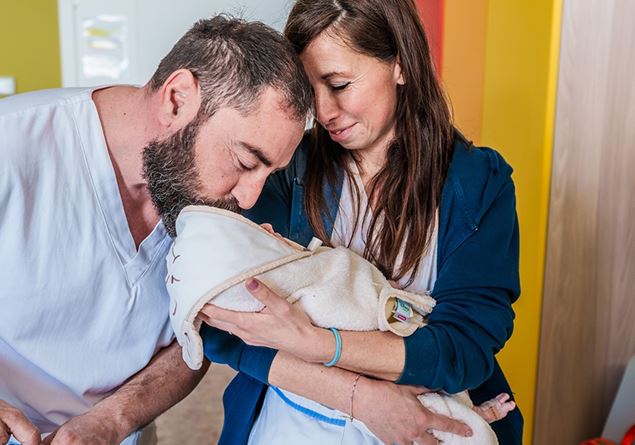Kate Middleton announces she is in remission from her cancer. A medical term that patients know but whose exact meaning is not always understood. Definition.
After completing her chemotherapy treatment last September, Kate Middleton announced on January 14 that she was “in remission” from her cancer in a message posted on the social network X. “It’s a relief to now be in remission and I remain focused on my recovery,” wrote the princess. of Wales. In November 2023, it was the French singer Florent Pagny who announced that he was officially in remission from his lung cancer. What does “being in remission” actually mean?
What is the definition of “remission” or “complete remission”?
“A patient is said to be in “remission” when his condition is stabilized or he presents fewer symptoms of the disease. And it is said to be in “complete remission” when all signs of the disease have disappeared and no further examination shows any trace of any residual cancer. explains the National Cancer Institute (Inca).
What is the difference between “remission” and “cure”?
“Remission” does not mean “cure”
“Complete remission” does not mean “cure” because a recurrence, even remote, of the cancer is possible. To determine whether complete remission is – or is not – synonymous with cure, it is necessary wait and watch. The longer a remission lasts, the more likely it is to be permanently cured.
Can we stop treatments in the event of complete remission?
No. Even at the stage of complete remission, it is not possible to interrupt treatments. A “normal” examination result can mean two things:
- Or all the cancer cells have been eliminated. No recurrence will appear subsequently and the patient is definitely cured.
- Either they have not all been eliminated, some have survived but are too small to be detected in examinations. The disease may recur.
If in doubt, the patient must continue treatment.
How long does it take to talk about healing?
In cancerology, we must distinguish between “remission” and “cure”. A patient suffering from cancer is said to be “cured” if after a certain period of time, no recurrence of the disease has occurred. Arbitrarily, this deadline is set at 5 years. For certain cancers, particularly those that grow quickly (acute leukemia, aggressive lymphoma…), relapses generally appear in the short term and it is not necessary to wait 5 years without relapse to speak of recovery. Conversely, for slow-growing cancers (like some breast cancers), you have to wait more than 5 years to speak of recovery because relapses can sometimes occur after 20 years.
What is the cure rate depending on the type of cancer?
Currently in France, all cancers combinedalmost 70% of patients are still alive 5 years after the discovery of their illness (Inca figures, updated in 2024).
So-called “good prognosis” cancers:
► Survival rate after 5 years for cancer of the prostate : 93%
► Survival rate after 5 years of melanoma cutaneous: 93%
► Survival rate after 5 years for cancer of the breast : 88%
► Survival rate after 5 years of cancer colorectal : 63%
► Survival rate after 5 years for cancer of the cervix : 63%
So-called “poor prognosis” cancers:
► Survival rate after 5 years for cancer of the central nervous system: 26%
► Survival rate after 5 years for cancer of the lung : 20%
► Survival rate after 5 years for cancer of the liver : 18%
► Survival rate after 5 years for cancer the esophagus : 17%
► Survival rate after 5 years for cancer of the pancreas : 11%
- Panorama of cancers in France, National Cancer Institute, 2023 edition
- BEH Incidence of the main cancers in mainland France in 2023 and trends since 1990
- Cancer Foundation website








